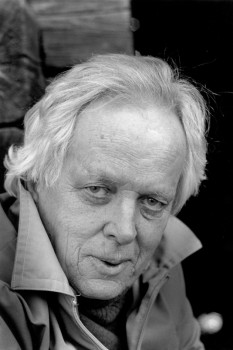In memoriam Veijo Meri 1928-2015
29 June 2015 | In the news

Veijo Meri. Photo: Irmeli Jung / Otava.
The writer Veijo Meri died on 21 June after a long illness.
Best-known for his war fiction, Meri was one of the towering figures of Finnish literature in the second half of the 20th century. Born in Viipuri in eastern Finland, subsequently ceded to the Soviet Union, he wrote novels, short stories, poetry, stage and radio plays and essays.
He came to prominence with his novel Manillaköysi (‘The manila rope’, 1957), which tells the tragicomic story of a soldier who tries to smuggle a rope home from the front during the Second World War. War and the army were central subjects for this anti-war writer, who deals with his subject with caustic humour, often focussing on loneliness, anxiety and sexual pressures.
A fresh voice in Finnish prose, breaking with its realist tradition, Meri was a film buff who used rapid changes of angle, compression and close-up to emphasise the strangeness and inexplicability of what he wrote about. His is manly prose, much admired by high-achieving male readers. Among the work we have published in Books from Finland is Underage, a short story that brilliantly illustrates Meri’s terse, masculine style; it is accompanied by an interview by Maija Alftan and Meri’s own essay on the art of the short story.
Meri’s minimalist style has something in common with American authors such as Ernest Hemingway and Raymond Chandler, and with the film-makers Sergei Eisenstein, Charlie Chaplin and Ingmar Bergman.
A prodigious talker and reader as well as a writer, Meri was very much at home in his skin. ‘You tend to avoid thinking about death,’ he wrote at the onset of middle age, because it seems a pity that you will have to leave the world, now that you finally feel at home here.’
Meri’s work has been translated into 24 languages.
